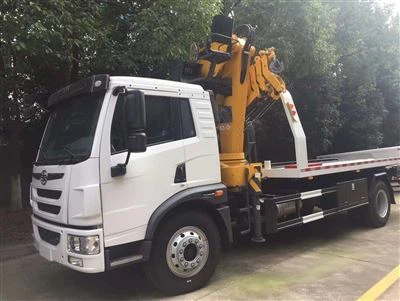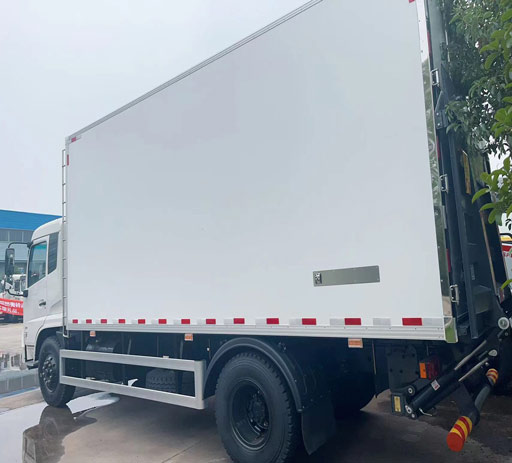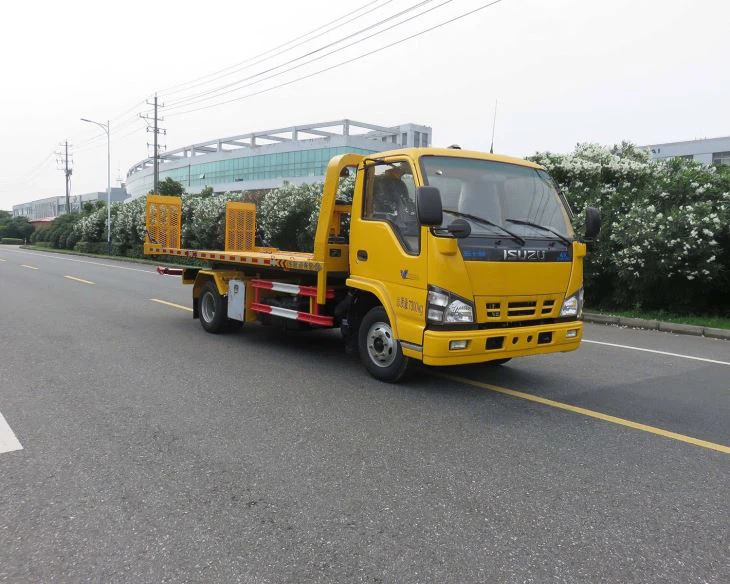Everything You Need to Know About 6 Yard Dump Trucks

Introduction
When it comes to construction, landscaping, or heavy-duty hauling jobs, having the right equipment is essential to ensure efficiency and effectiveness. One key piece of equipment that stands out for various projects is the 6 yard dump truck. This article will delve into the specifics of 6 yard dump trucks, covering their features, benefits, costs, and practical applications. Whether you are a contractor, a business owner, or a DIY enthusiast, understanding these trucks can help optimize your operations and decision-making processes.
Understanding the 6 Yard Dump Truck
What is a 6 Yard Dump Truck?
A 6 yard dump truck is a type of vehicle specifically designed for transporting materials and transporting bulky goods. Its capacity is measured in cubic yards, making it suitable for various construction and landscaping tasks. With an approximate load capacity of 6 cubic yards, these trucks are efficient for hauling gravel, dirt, sand, and other materials.
Key Features of 6 Yard Dump Trucks
- Payload Capacity: Can typically handle loads between 10,000 to 13,000 pounds.
- Dump Mechanism: Equipped with hydraulic systems to facilitate easy unloading of materials.
- Size: Compact enough to navigate tight spaces compared to larger dump trucks.
- Durability: Built with heavy-duty materials to withstand challenging work conditions.
- Versatility: Can be used for residential, commercial, and industrial applications.
Applications of 6 Yard Dump Trucks
Construction Projects

6 yard dump trucks are commonly used in construction sites to transport raw materials such as cement, gravel, and sand. They facilitate quick deliveries, ensuring that projects stay on schedule.
Landscaping Work
For landscaping projects, these trucks effectively transport soil, mulch, and rocks. Their size allows them to access residential areas and deliver necessary materials for efficient landscaping.
Snow Removal
In colder climates, 6 yard dump trucks can be employed for snow removal. Their capacity makes them suitable for hauling snow away from streets and parking lots.
Renovations and Remodeling
In home renovation projects, 6 yard dump trucks can help remove debris and deliver materials like bricks or tiles, making them invaluable during the remodeling process.

Benefits of Using a 6 Yard Dump Truck
Efficiency in Heavy Hauling
The compact size and optimal payload capacity of a 6 yard dump truck enable faster transportation of materials, enhancing workflow on job sites.
Cost-Effectiveness
For smaller projects, renting or purchasing a 6 yard dump truck can be more cost-effective than hiring larger trucks, which may be underutilized.
Ease of Operation
These trucks are relatively easy to drive, making them accessible for operators with less experience. Their smaller size allows for easier maneuverability in urban environments.
Choosing the Right 6 Yard Dump Truck
Consider the Type of Job
Before selecting a dump truck, evaluate the type of work you will be doing. For heavier tasks, choose a model with a higher payload capacity.
Assessing Fuel Efficiency
Look for models that offer better fuel efficiency, as this can reduce overall operating costs. Modern trucks often come with fuel-efficient engines tailored for heavy-duty use.
Safety Features
Ensure that the truck is equipped with safety features like backup cameras, hydraulic brakes, and stabilizers for secure loading and unloading.
Brand Reputation
Evaluate different brands and their reputations in terms of performance and reliability. Reading user reviews and feedback can provide invaluable insights.
Cost of a 6 Yard Dump Truck
Purchase Price
The purchase price for a new 6 yard dump truck typically ranges from $30,000 to $60,000. Certain factors influence the price, including brand, model, and additional features.
Rental Costs
If purchasing a truck isn’t feasible, renting is a viable option. Rental rates for 6 yard dump trucks can vary between $100 to $300 per day, depending on the rental company and location.
Maintenance Costs
Regular maintenance is vital for the lifespan of the truck. Budget for oil changes, tire replacements, and other servicing, which could total around $1,000 to $3,000 annually.
Comparison Table of Costs
| Cost Type | Estimated Amount |
|---|---|
| Purchase Price | $30,000 – $60,000 |
| Daily Rental Fee | $100 – $300 |
| Annual Maintenance | $1,000 – $3,000 |
Best Practices for Operating a 6 Yard Dump Truck
Pre-Operation Checks
Always conduct pre-operation checks, including inspecting the brakes, tires, and hydraulic systems. This ensures both safety and reliability during usage.
Proper Loading Techniques
Evenly distribute the load within the truck to avoid tipping. Never overload the capacity since it can damage the truck and compromise safety.
Safe Driving Practices
Understand the truck’s dimensions, especially when navigating narrow roads or turning corners. Maintain a safe driving speed and keep a safe distance from other vehicles.

Frequently Asked Questions (FAQs)
1. What is the average load capacity of a 6 yard dump truck?
The average load capacity of a 6 yard dump truck generally ranges from 10,000 to 13,000 pounds, depending on its specific design and model.
2. Can I use a 6 yard dump truck for residential landscaping?
Yes, a 6 yard dump truck is ideal for residential landscaping, as it can easily deliver materials like soil, mulch, or rocks while navigating tighter spaces.
3. How often should I service my dump truck?
Regular maintenance, ideally every 3,000 to 5,000 miles, is recommended to keep the truck in optimal condition. This includes oil changes, brake checks, and tire rotations.
4. Are there any special licenses required to operate a 6 yard dump truck?
Typically, a regular driver’s license is sufficient, but checking with state regulations is essential to ensure compliance with any additional requirements.
5. What are the safety features I should look for in a dump truck?
Look for features such as backup cameras, stabilizer systems, and anti-lock braking systems to enhance safety during operation.
6. Are 6 yard dump trucks fuel-efficient?
The fuel efficiency of a 6 yard dump truck can vary, but most modern models are designed with fuel efficiency in mind, helping to reduce operational costs.
